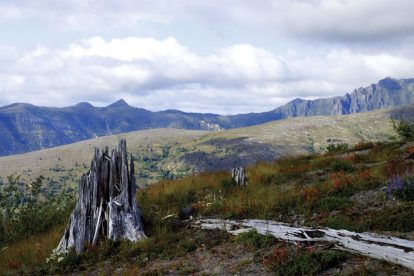Digital Edition
Common home
At Mount St. Helens, a spiritual insight on ecological healing
I stood more than 4,000 feet above sea level—close to one mile. As I approached the Johnston Ridge Observatory in the Cascade Mountains, the world opened up and I beheld something awesome: the glacier-flecked, smoking remains of a volcano.
Although it has carried the European name Mount St. Helens since 1792, many Native peoples speak of it as Loowit. The Klickitat peoples call it Louwala-Clough, the Cowlitz peoples call it Lavelatla (“the smoker”), and the Puyallup peoples call it Loowitlatkla (“lady of fire”). These names predate the Europeans by millennia.
I had visited Loowit 16 years earlier when I lived in Seattle. At that time, I was put off. The destruction from its 1980 eruption—the year I was born—still dominated the surrounding landscape for miles on end: Mountains and valleys were clothed with dust, rocks, and tree stumps, and they were mostly devoid of life. A few rivers and streams ran through the area, and some lakes and glaciers dotted the landscape. But it was more similar to a moonscape than a life-giving ecosystem.
This time, the world around the volcano had changed. The once desolate landscape now grew verdant and teemed with life. Wildflowers in the meadows were plentiful. Tall pines, cedars, and broadleaf trees had returned. They created a canopy for ferns, bushes, berries, and all kinds of other plants to grow under their protection. These, in turn, created a home for more life. Hawks, eagles, and other birds soared above the trees while small animals and insects scurried about their business below.
In the 42 years since its eruption, and the 16 years since my last visit, the land has undergone a kind of resurrection. Much of the reason for this is simply because we humans got out of the way. Sometimes human cooperation with God asks for us to yield and let God’s Spirit move. Instead of trying to solve a problem that is beyond our power, we back off, observe, and wait.


